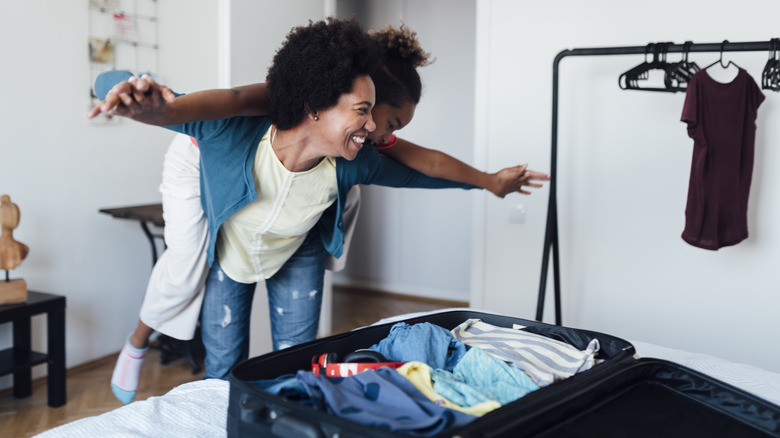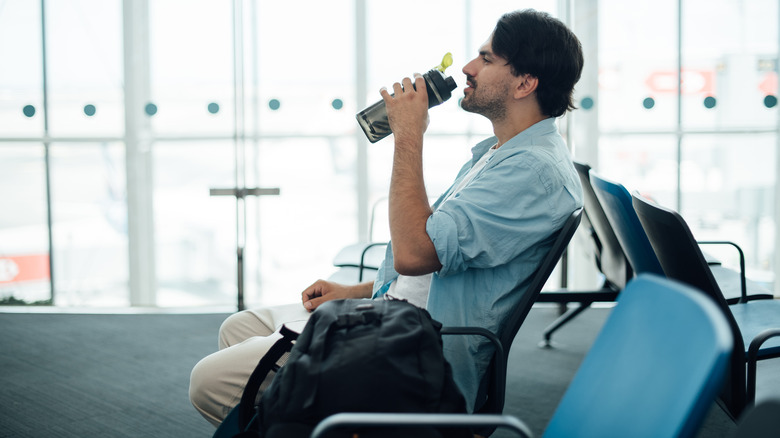Expert Tips On What To Do The Night Before Flying
While we may be eager to arrive at our vacation destination, the actual getting there can put a great deal of mental and physical strain on our bodies. From jet lag to disrupted routines, flying can take a lot out of us. Health Digest reached out to Dr. Constance Foreman, a family medicine physician with Novant Health in Wilmington, North Carolina, to find out what we can do prior to airplane travel to best support our health.
"Many people seem to succumb to the stress of traveling before the trip even starts," Dr. Foreman states right off the bat. "Traveling can throw us off our game, but with a little preparation we can have a smooth flight in more ways than one."
Her first tip for travelers is not to skip your workout routine the night before your flight. "Doing this can make you feel more sluggish and cause lapses in your mental fortitude," she says. Offering her second tip, Dr. Foreman states, "Remember to take your regular medications and supplements." This is particularly important because the chaos of travel may cause this to slip our minds. "Sometimes the excitement of a trip can cause us to forget things that we'd typically do," she says. "Also remember to carry at least several doses of your medications on the plane with you in the event that there is a delay or lost luggage," Dr. Foreman adds.
Keep your body hydrated and fueled
Dr. Foreman goes on to tell us exclusively that her next two tips center on nutrition. "Hydrate well," she emphasizes. "Hydration is important for many bodily functions, including enhancing sleep and cognition." While hydration is essential on an everyday basis, it is especially critical when traveling. Drinking plenty of fluids and getting a good night's rest from the start may help relieve sleep issues related to jet lag while traveling.
Offering her fourth tip, Dr. Foreman states, "I encourage everyone to pack healthy snacks." She goes on to provide some delicious examples. "Prepackaged salads meet all of the TSA requirements," Dr. Foreman says. "Grab one of these or a sandwich, fruit, nuts, or [any] other of your favorite foods and take them with you and know that you'll nourish your body well and avoid the cost of expensive airport food."
Ending the interview, Dr. Foreman gives her final pre-travel tip specific to caregivers: "Do your best to follow your child's typical routine," she encourages. "Have them eat dinner and go to sleep at an appropriate time to avoid a cranky child and late or strained airport arrival."


